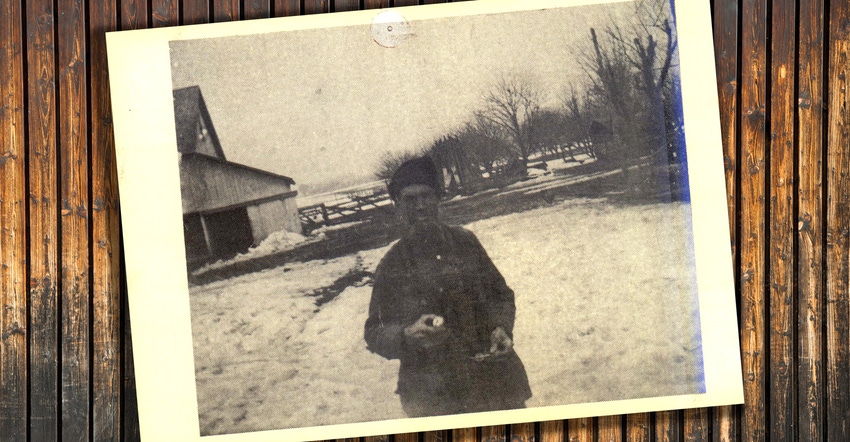June 29, 2022

As a fifth-generation Illinois farmer, I recognize aspects of my family’s story in the lives of other producers across the state.
But my family’s identity reaches beyond Illinois to the counties of Cork and Tipperary in Ireland. My ancestors were Catholic tenant farmers who endured widespread famine that devastated their livelihood and challenged their spirit. The struggles and hopes they brought to America resonate generations later on our central Illinois farm.
Emigrating to America
Recently, I traveled to Ireland for a closer look at the conditions my ancestors faced in the 1800s and the continued influence of that period on Irish agriculture. What I discovered there shed some light on Dad’s approach to farming during his lifetime and the principles he passed on to me.
Like many emigrants, my kin settled in concentrated areas in the United States. The Ryans and the Donovans, Dad’s maternal ancestors, put down roots in McLean and DeWitt counties.
“I imagine they knew this was a good place for farming,” Dad used to say about the first to make the treacherous journey across the Atlantic and settle in Illinois. “The soil was rich, and the landscape was mostly flat.”
By the time my ancestors reached the state in the 1860s and 1870s, the availability of public land for purchase was already dwindling. The Graduation Act of 1854, which provided a gradually descending price scale for farmers who were willing to settle and cultivate suboptimal land, resulted in the snatching up of Illinois soil. After President Abraham Lincoln signed the Homestead Act of 1862, only 74 claims were documented in the state, roughly 6,000 acres of remaining unclaimed public land.
For people of Irish descent who fled starvation and persecution, however, Illinois represented a land of plenty. My ancestors gradually purchased tracts of tillable ground alongside less tillable acres for grazing livestock. They grew much of their own food and likely hunted wild game. They had learned from the past.
A confluence of factors exacerbated the toll of the Great Famine, including overreliance on a single crop. Potatoes were a staple of the Irish diet, especially among large farming families that found they could store and stretch the nutrient-rich root vegetable. Seemingly overnight, the fungus Phytophthora infestans left potatoes rotting in the fields and the most impoverished citizens without enough to eat.
Disease was just one part of the story. Since most tenant farmers owned no land, their fates were in the hands of wealthy landowners, primarily British, whose interests were shifting from tilling to grazing. Raising livestock required fewer laborers, decreasing reliance on big families.
Simply put, my ancestors lacked the power to shape their own destinies in Ireland. Dad gleaned lessons from their hardships, making him determined to secure a more hopeful future on the farm.
Prioritizing land ownership
For as long as I can remember, my parents placed a high value on acquiring land. They scrimped and saved to make sizable down payments on desired tracts, then scrimped and saved some more to pay off their loans as quickly as possible.
Dad cared less about how many times their names appeared in the plat book and more about the acreage they owned outright. The way Dad saw it, anything he and Mom were still making payments on wasn’t technically theirs.
Assessing risks and rewards
As much as my father disliked spending money on, well, just about any creature comfort, he was willing to take risks if the payoff was a more competitive, yet stable, operation.
When neighbors were buying up farmland during a period of soaring crop prices in the 1970s, Dad borrowed cautiously. The destitution experienced by his Irish ancestors, as well as memories of his parents struggling to feed four growing boys during the Great Depression, prevented Dad from counting on continued market growth and increased production. As a result, he held on to his hard-earned ground.
Many historians claim that the Great Famine forever changed the Irish psyche and the perspectives of those who left Ireland for a better life. My father, who went by “Taters” at the local elevator, taught me that our pasts have much to teach us. You just have to listen.
Ryan is a farmer’s daughter from Clinton, Ill., and a professor at the University of Alabama at Birmingham. Following her father’s death and mother’s relocation to her Alabama home, Ryan manages the family farm from afar. The opinions of this writer are not necessarily those of Farm Progress/Informa.
About the Author(s)
You May Also Like






